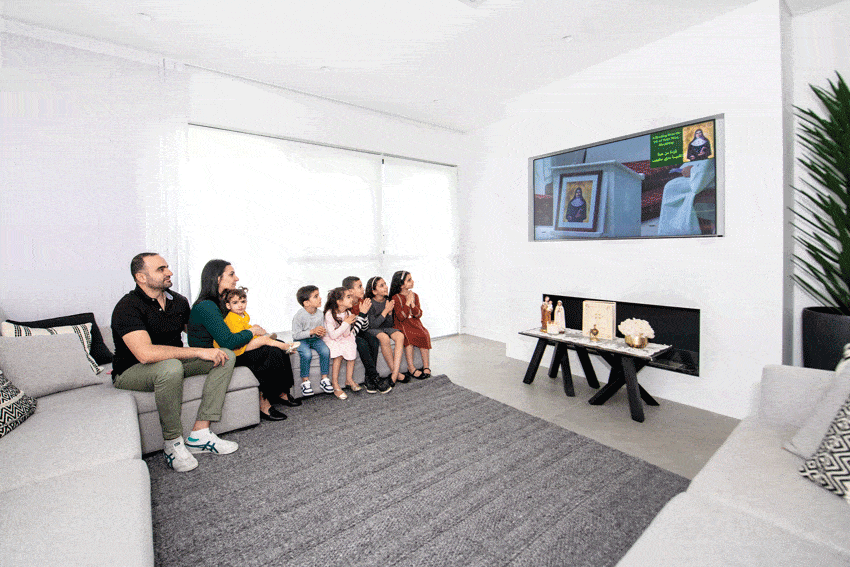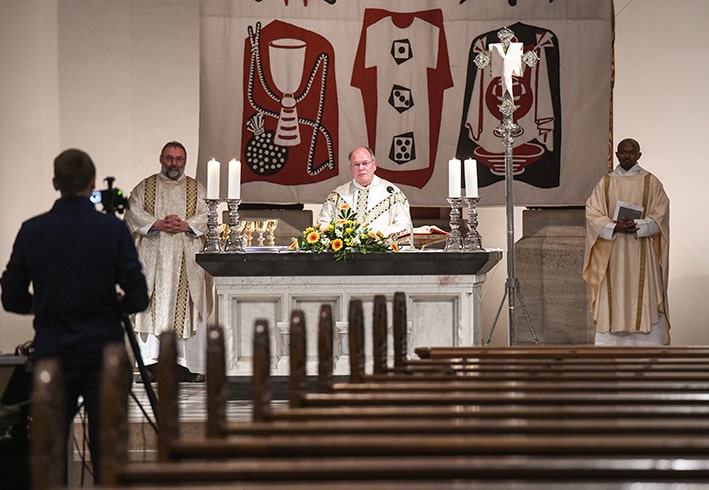
They are George and Rafka Boutros with their children Ava, Christopher, Veronica, John-Luke, Sophia and Amelia. PHOTO: Giovanni Portelli
A new report offers insight into the dismay and anger experienced by church-going Catholics at forced church closures during Australia’s COVID-19 pandemic lockdowns.
Dr Philippa Martyr, academic and Catholic Weekly columnist, gathered the experiences of 175 Australian church-going Catholics, representing the broadest and largest cross section of the churchgoing Australian Catholic public that has been captured in qualitative COVID-19 studies to date.
Published in the Journal of Religion and Health, the report covers a diverse range of views about church leadership, lockdowns, conspiracy theories, the merits and deficits of online worship, and their own thriving or suffering during the closures from 23 March until early July in 2020 and beyond as churches began to reopen.
While some people reported the stay-at-home orders as a blessing in disguise and grew their faith with online resources and personal prayer, the biggest number of responses were critical.
There were mixed attitudes towards both church and secular leadership, with some highly critical and others grateful for the lockdowns and health restrictions.
“I feel that the restrictions on worship are heavy-handed and a breach of the separation of church and state,” wrote one respondent.
Most poignant were the voices expressing deep feelings of loss. Not being able to attend Mass “is torturing for me” wrote another.

While none of the anonymous respondents shared views aligned with conspiracy theories about the origin and transmission of COVID-19, vaccines or other public health measures, some voiced frustration at the influence of conspiracy theory thinking among their friends and relatives.
Dr Martyr said that civic leaders didn’t appreciate how much the church closures were a crisis for worshipping Catholics and now the experience had been “swept into the forgettery.”
“It’s a shame, because now there are excellent guidelines from the US about how to keep Catholic churches open and people receiving the sacraments safely in a pandemic,” she said.
“We need to remember that it is now possible to do this without causing super-spreader events.”
She said while it was clear that most churchgoers missed the sacraments and their worship communities “terribly,” the biggest surprise was seeing the range of opinion across the spectrum of theological attitudes.
“I did get the impression that those who responded felt that they needed to be heard,” she said.
“This is something a lot of Catholics struggled with during COVID-19—a sense of losing their voice not just physically, but spiritually and symbolically. They felt unheard and un-listened to by both church and state leadership.”
“But people of faith aren’t heard as much as they used to be in Australia anyway. I think that’s something we saw before COVID-19, and we’ve seen that process accelerate after it.”
